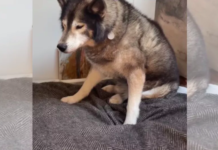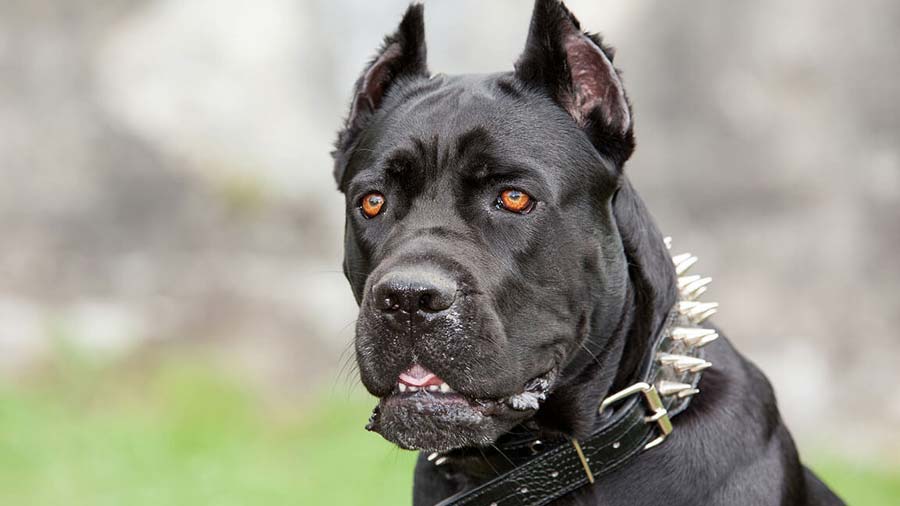Don’t overlook diarrhea in your dog if it simply won’t go away. It could be brought on by Giardia, a common intestinal parasite that spreads by infected animals’ feces.
The normal course of treatment includes medicine (together with meticulous cleaning) to get rid of the parasite from your pet’s habitat. There are easy actions you can take to lower your dog’s risk of infection even though there are no preventatives for Giardia in dogs.
What is Giardia?
Giardia duodenalis, a microscopic, single-celled parasite that often infects the intestines of dogs, is also known as Giardia intestinalis and Giardia lamblia. Here is how transmission occurs, according to the Companion Animal Parasite Council (CAPC):
Giardiasis-infected animals When a dog poos, the parasite is shed as cysts, infecting the hair, dirt, water, dog box, and other surfaces that the excrement may come into touch with. In certain conditions, these contagious cysts might last for months.
When a new host dog unintentionally consumes or drinks these infectious cysts, the dog gets infected.
The parasites break out of the cysts once they enter the dog’s digestive system, where they start feeding and growing.
In order to continue the cycle, some of the parasites may create cyst walls around themselves and then shed those cysts in the dog’s feces.
Given how Giardia is spread, it is not unexpected that research has shown an elevated infection risk among dogs that frequent dog parks.
Can People Get Giardia?
Giardia is a zoonotic parasite, meaning it may spread to people, according to Paul Diehl, DVM, of Kansas City Veterinary Care in Kansas City, Missouri. He says, “This is one of the arguments against drinking water from creeks, streams, and rivers. The parasite cysts in an infected animal’s feces may enter the water if it defecates close to the source and infect anybody who drinks them.
Sounds really disgusting, no? We concur. However, the Companion Animal Parasite Council notes that there is minimal proof of direct transmission between dogs and people, so if you’re concerned about getting Giardia from your dog, you should know that humans are far more likely to get the parasite from other humans.

What Are the Symptoms of Giardia in Dogs?
Many parasite-infected dogs won’t exhibit any overt symptoms of illness. Giardiasis is the name for the illness that Giardia may really cause. The most typical symptom of giardiasis is persistent diarrhea, but if it goes untreated for a long period, weight loss and even death may happen.
Giardia often results in very watery diarrhea, hence Diehl advises suspecting the parasite in any animal exhibiting diarrhea following contact with wildlife.
Dog excrement is examined for Giardia under a microscope, or an enzyme-linked immunosorbent assay (ELISA) test is used to see whether the poop includes antigens (proteins) that are found on the parasite.
How is Giardia in Dogs Treated?
Your dog will probably be given oral medicine after being diagnosed by the vet. Fenbendazole (a dewormer), metronidazole (an antibiotic), or a combination of the two are often used to treat Giardia in dogs. Additionally, febantel, pyrantel pamoate, and praziquantel may be used in conjunction with other drugs at times to treat canine parasites. If clinical indications persist after therapy is finished, follow-up testing at your veterinarian could be required.
It’s crucial to clean up and dispose of your dog’s waste as soon as you can after a Giardia treatment to reduce the risk of the disease spreading. In order to prevent re-infection, you must bathe your dog on the final day of therapy to remove any cysts that may still be clinging to his fur. Additionally, you should steam-clean or sanitize your pet’s surroundings, including the bedding, carpets, and furniture he loves to lounge on.
Is It Possible to Prevent Giardia?
Giardia in dogs is unfortunately not treatable with prophylactic drugs. You may take steps to lessen your dog’s risk of infection and reinfection, however. Diehl advises keeping your dog away from possibly polluted water sources and collecting your dog’s waste from the yard as soon as possible.
He continues, “I also advise washing dogs after they swim in ponds and lakes. Before the dog licks the animal’s hair and becomes sick, this will wash out any parasites that may be there.
What’s the Prognosis after Giardia?
In most cases, dogs with giardiasis react well to therapy and don’t have any long-term repercussions from the illness. However, older dogs and canines with underlying medical conditions in addition to giardiasis are more vulnerable to grave difficulties, including death.
Don’t hesitate to contact your pet’s veterinarian staff if you have concerns about your dog’s potty habits, such as the possibility that he may have acquired a parasite. If your dog has to be seen at the clinic, they can assist you in making that decision. For more detailed advice on how to prevent the parasite in your region, see your veterinarian.


















